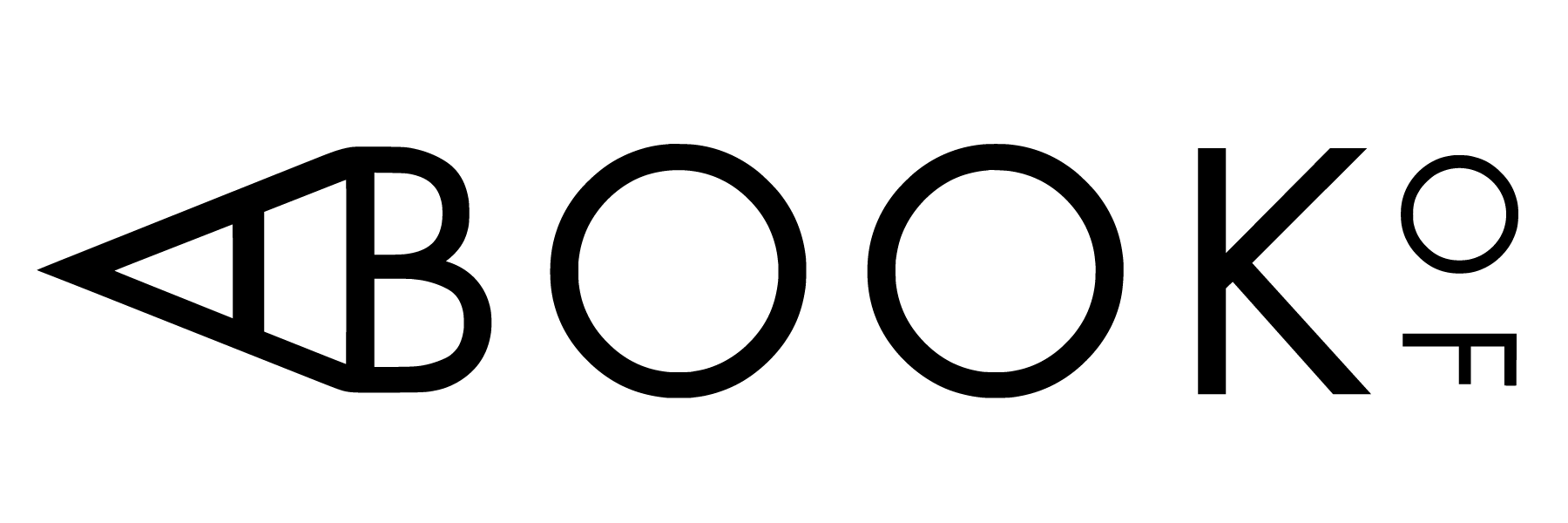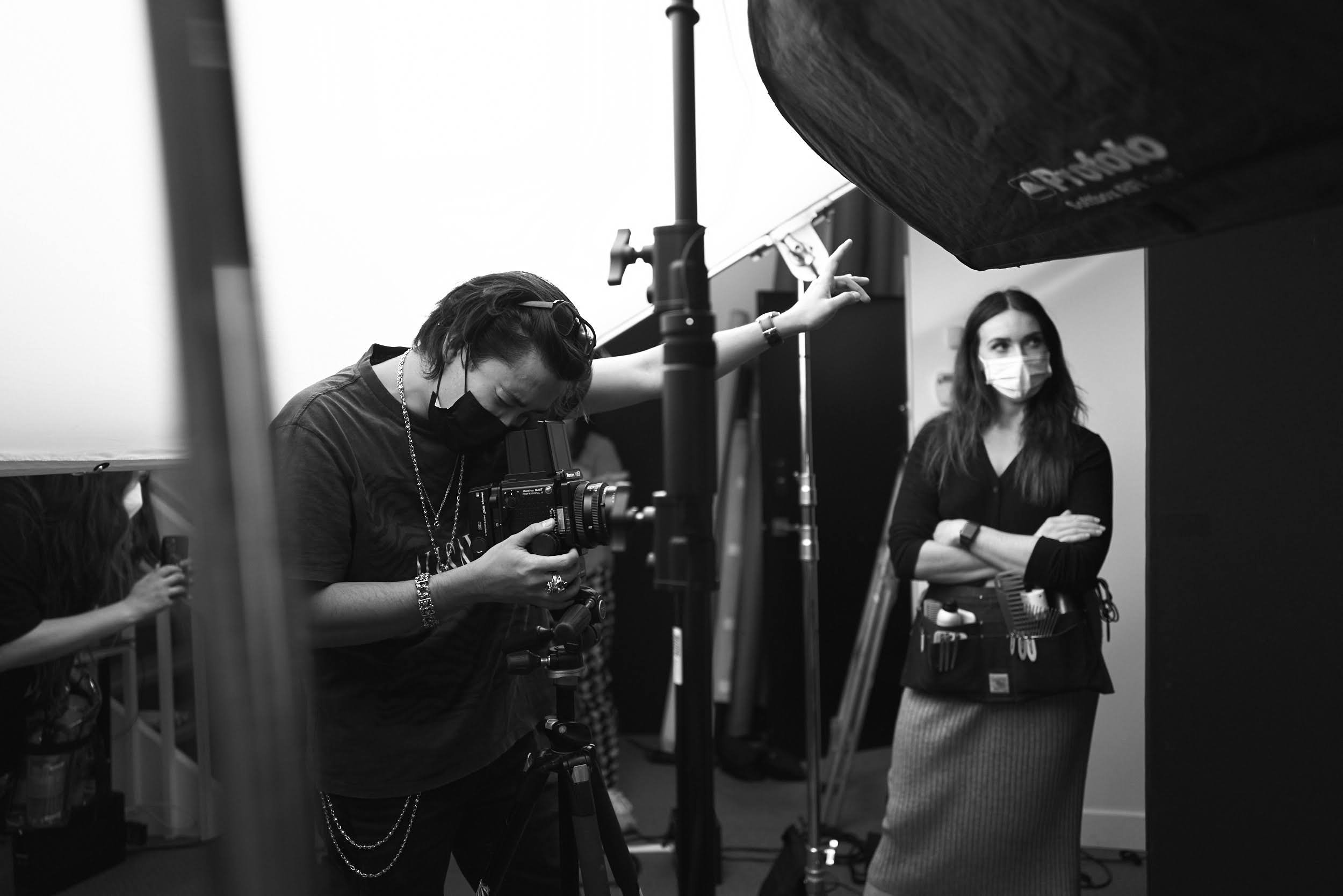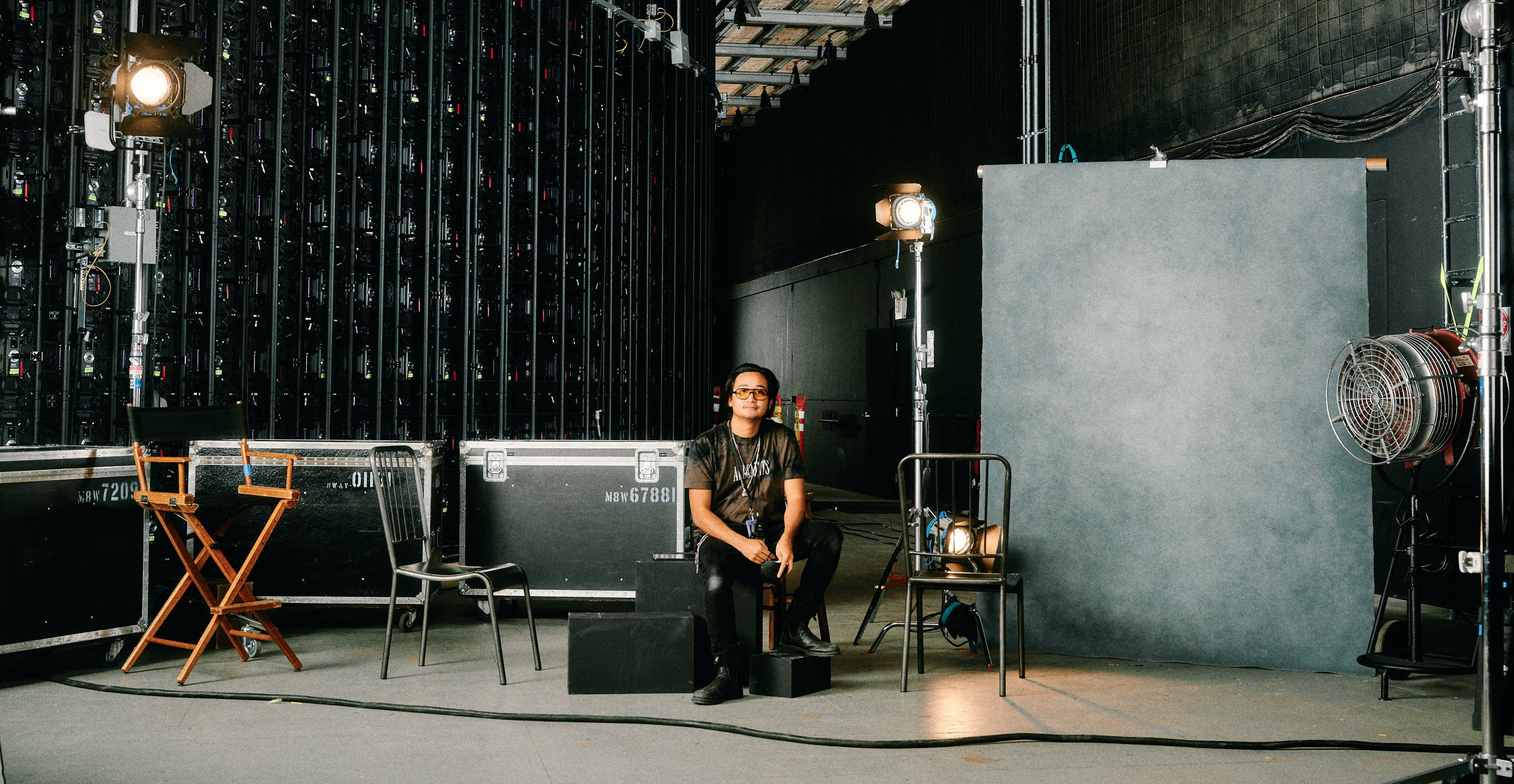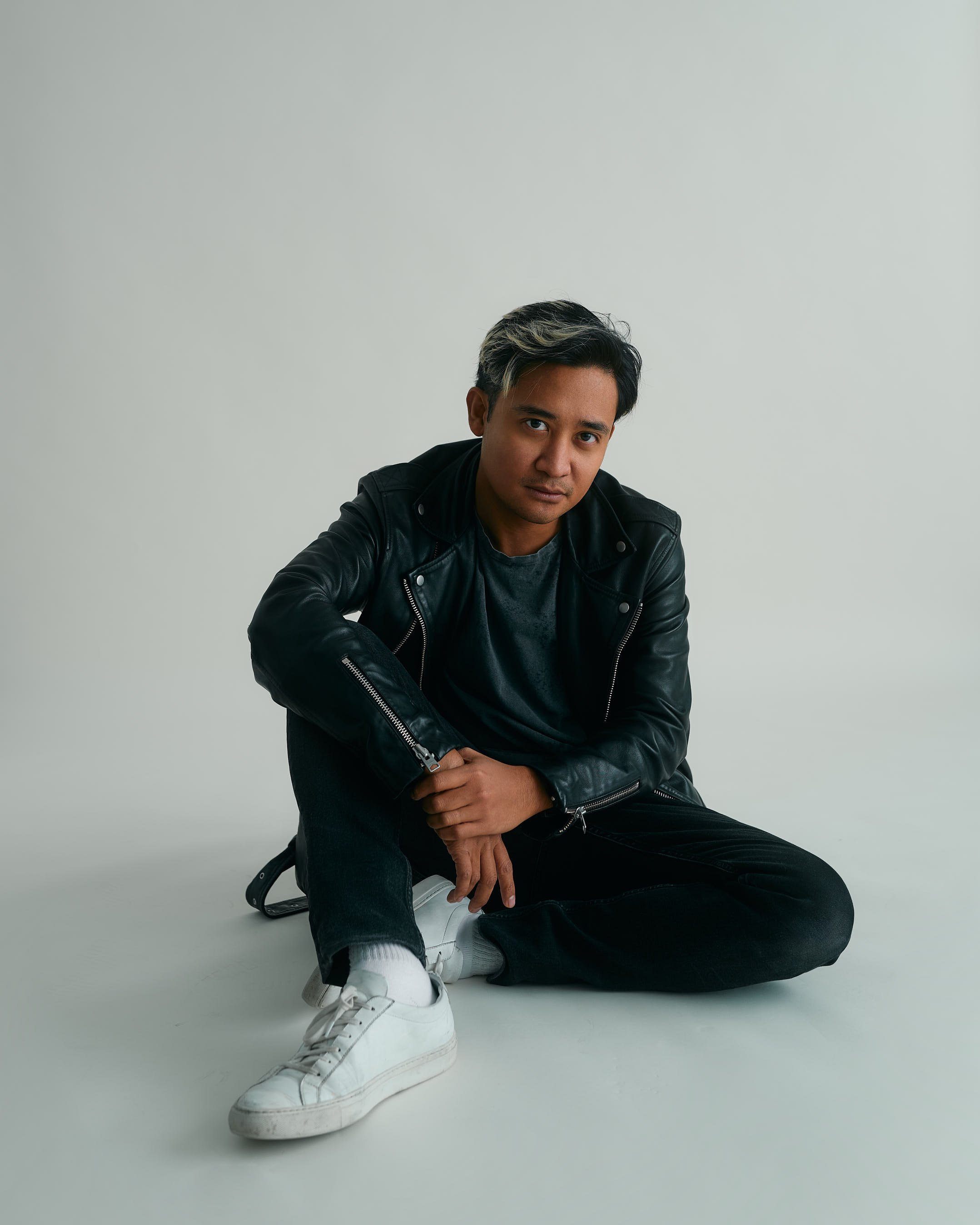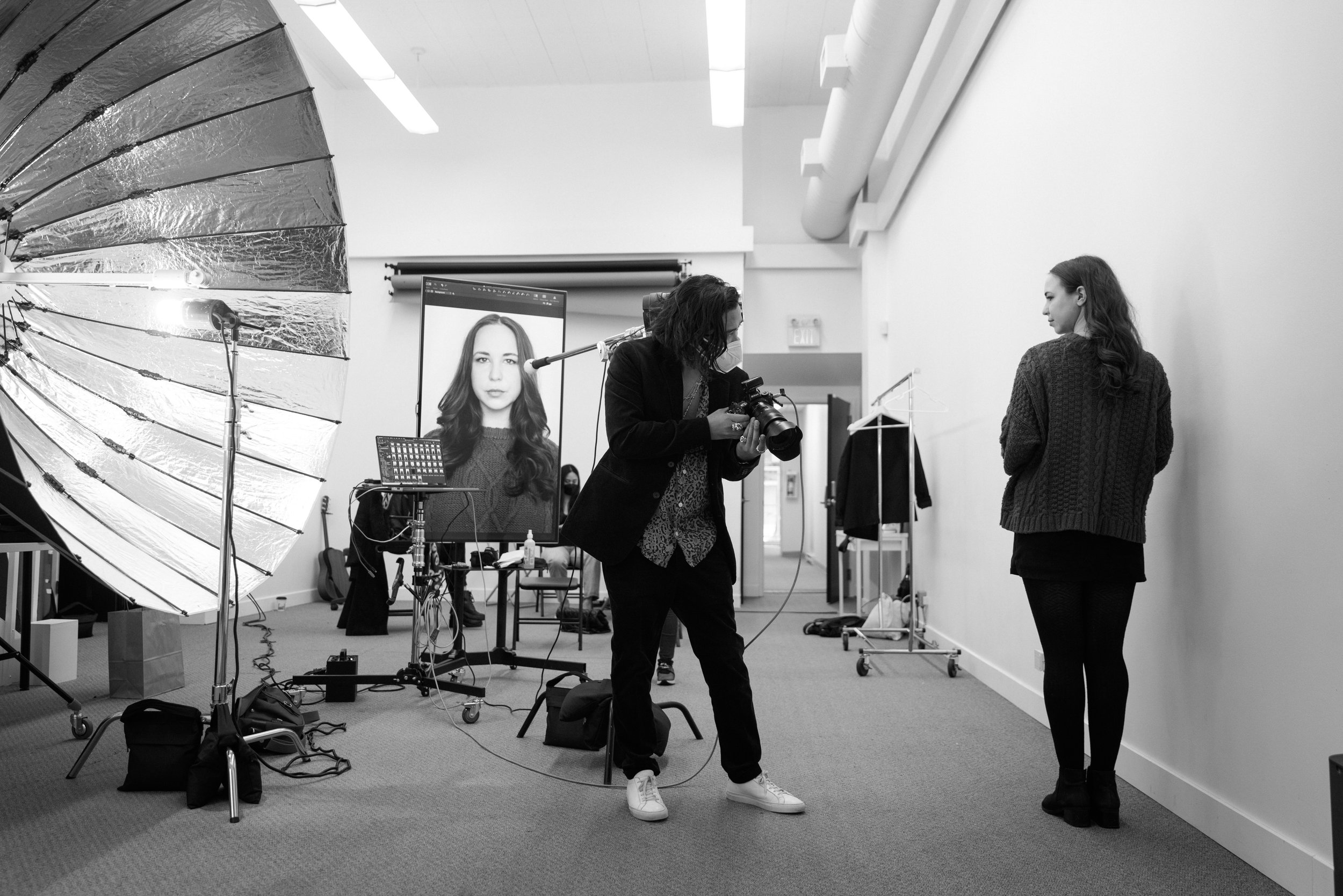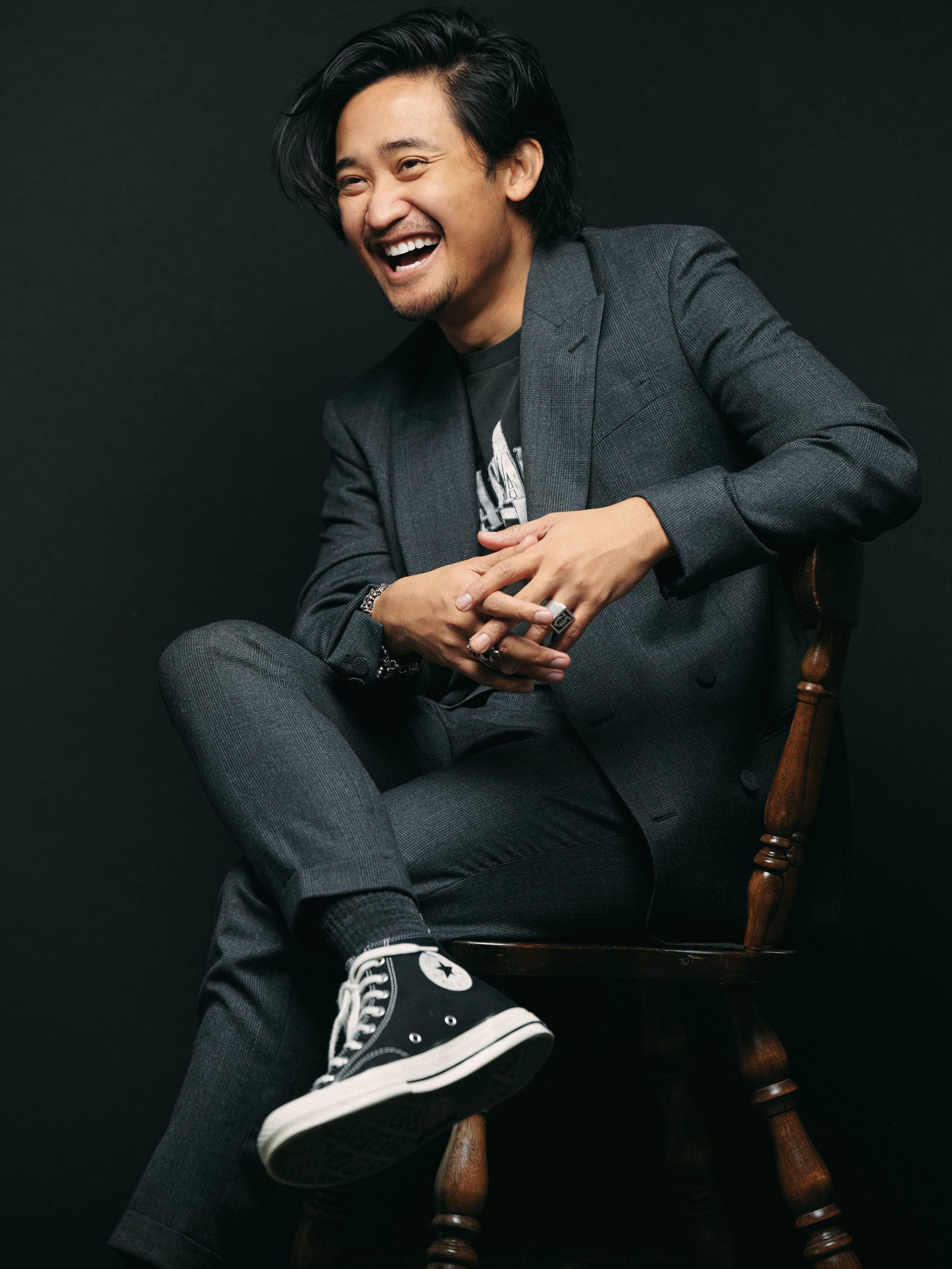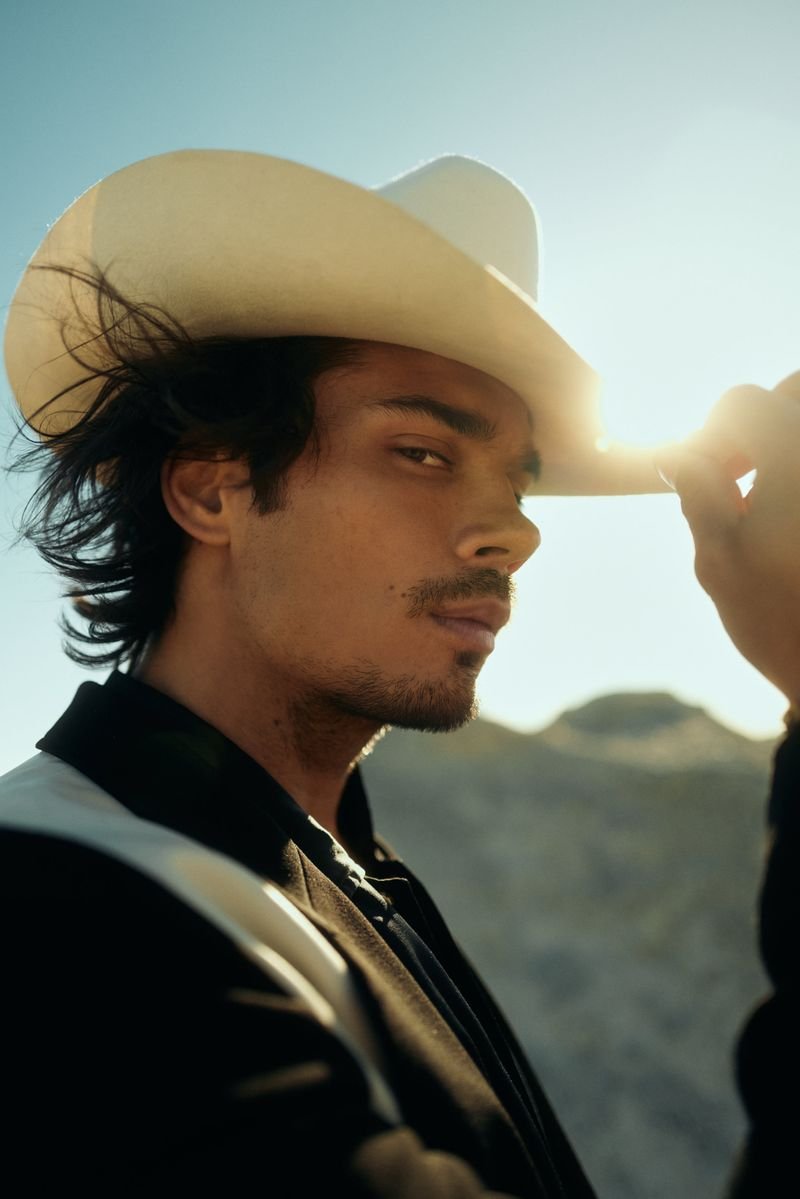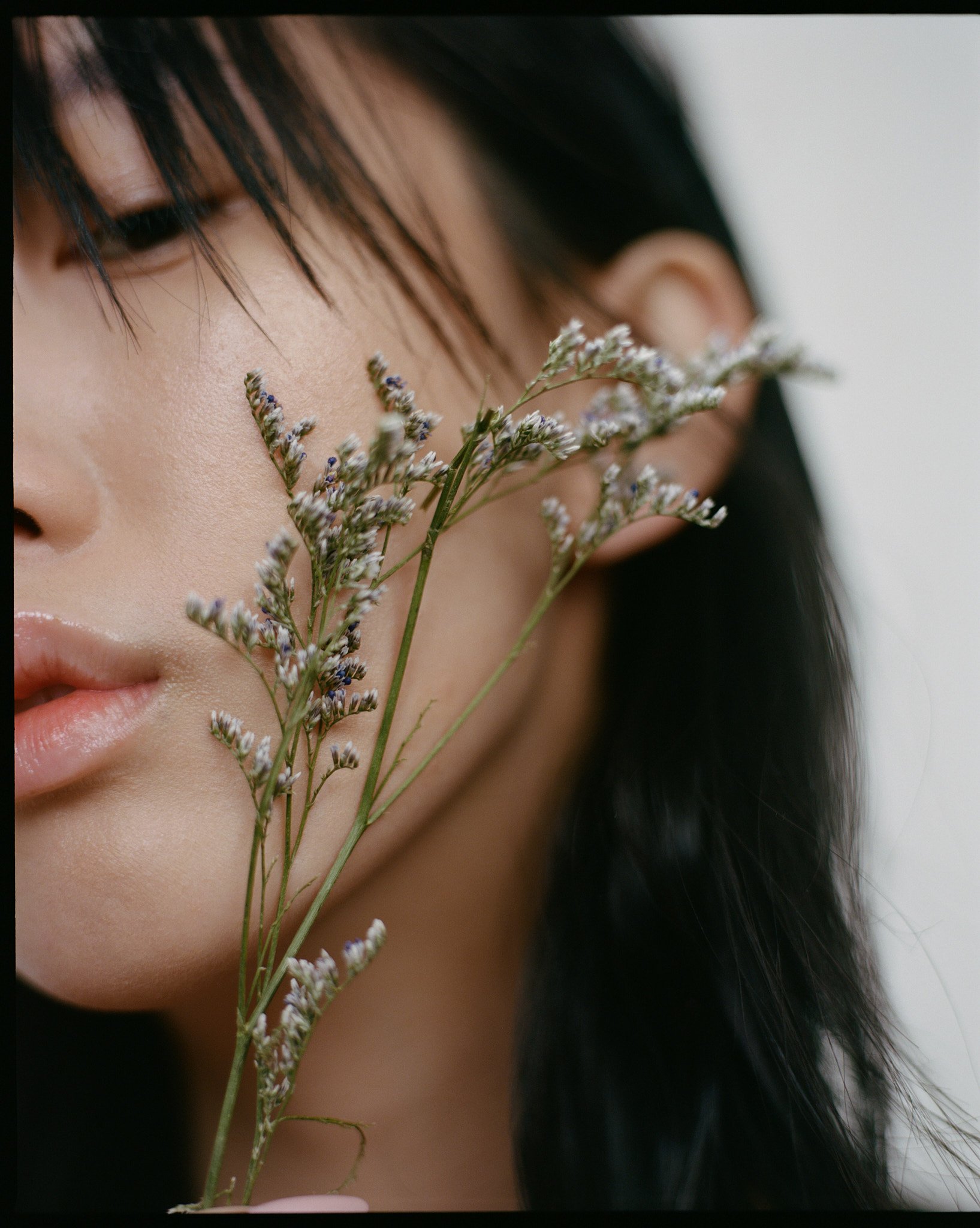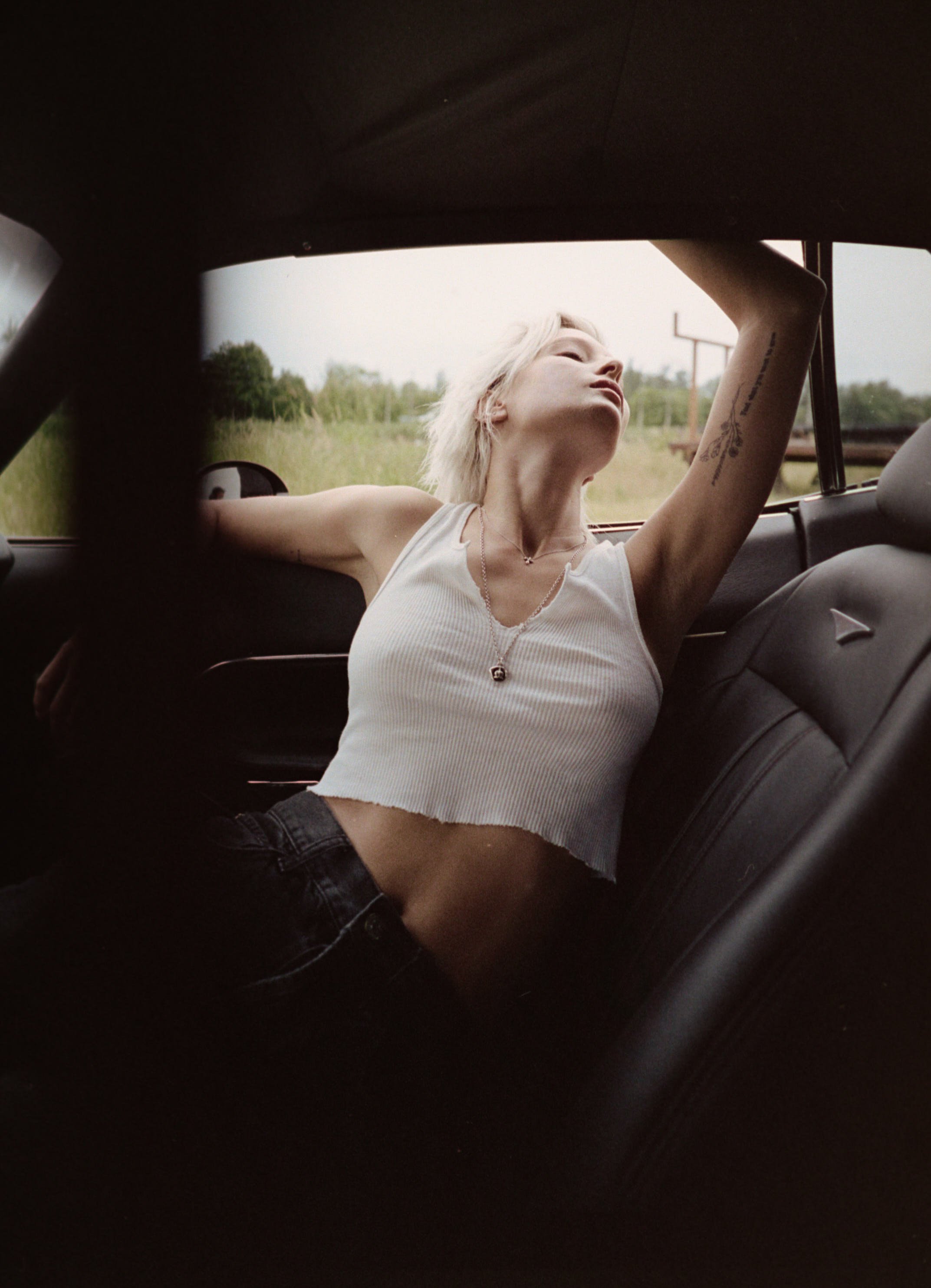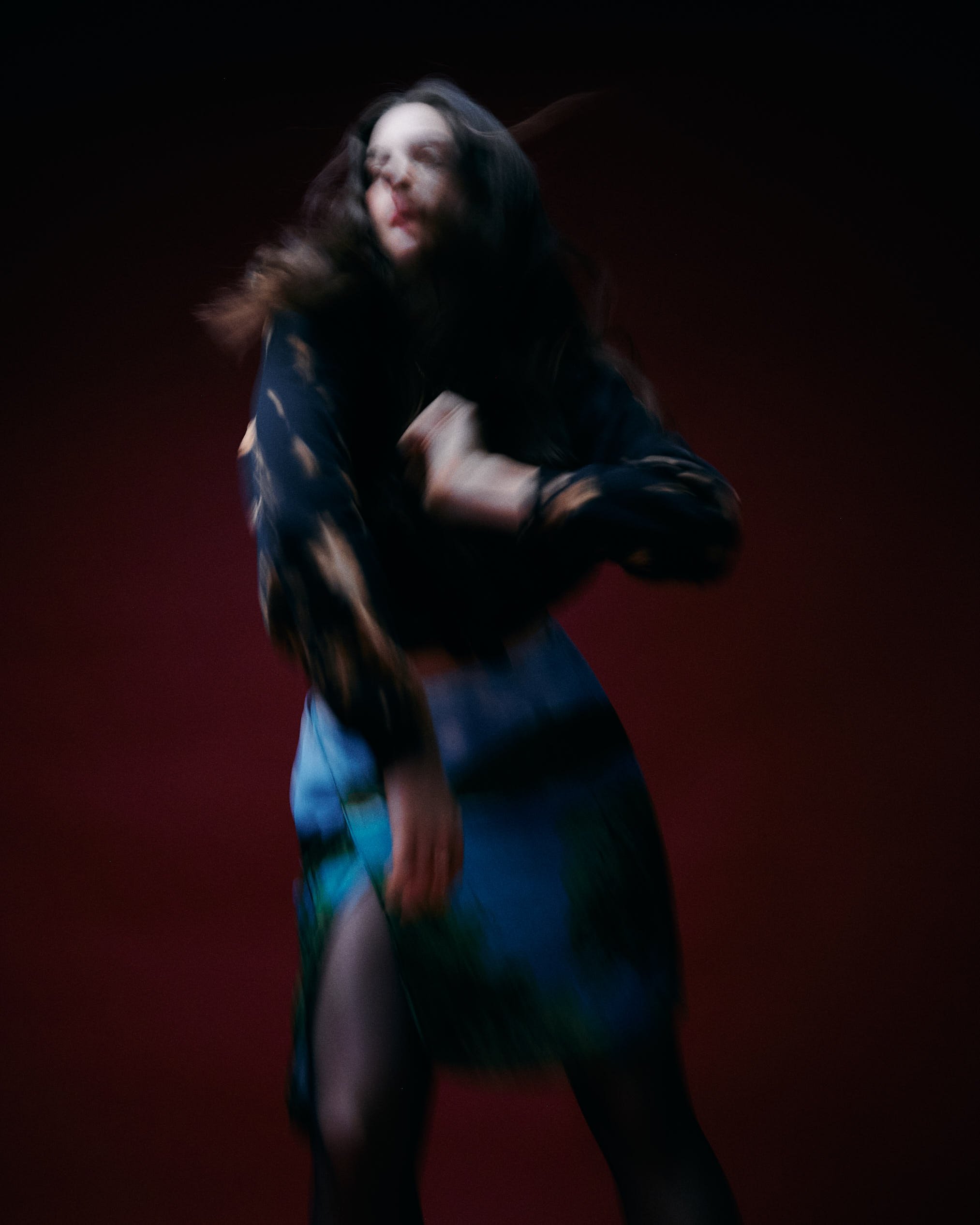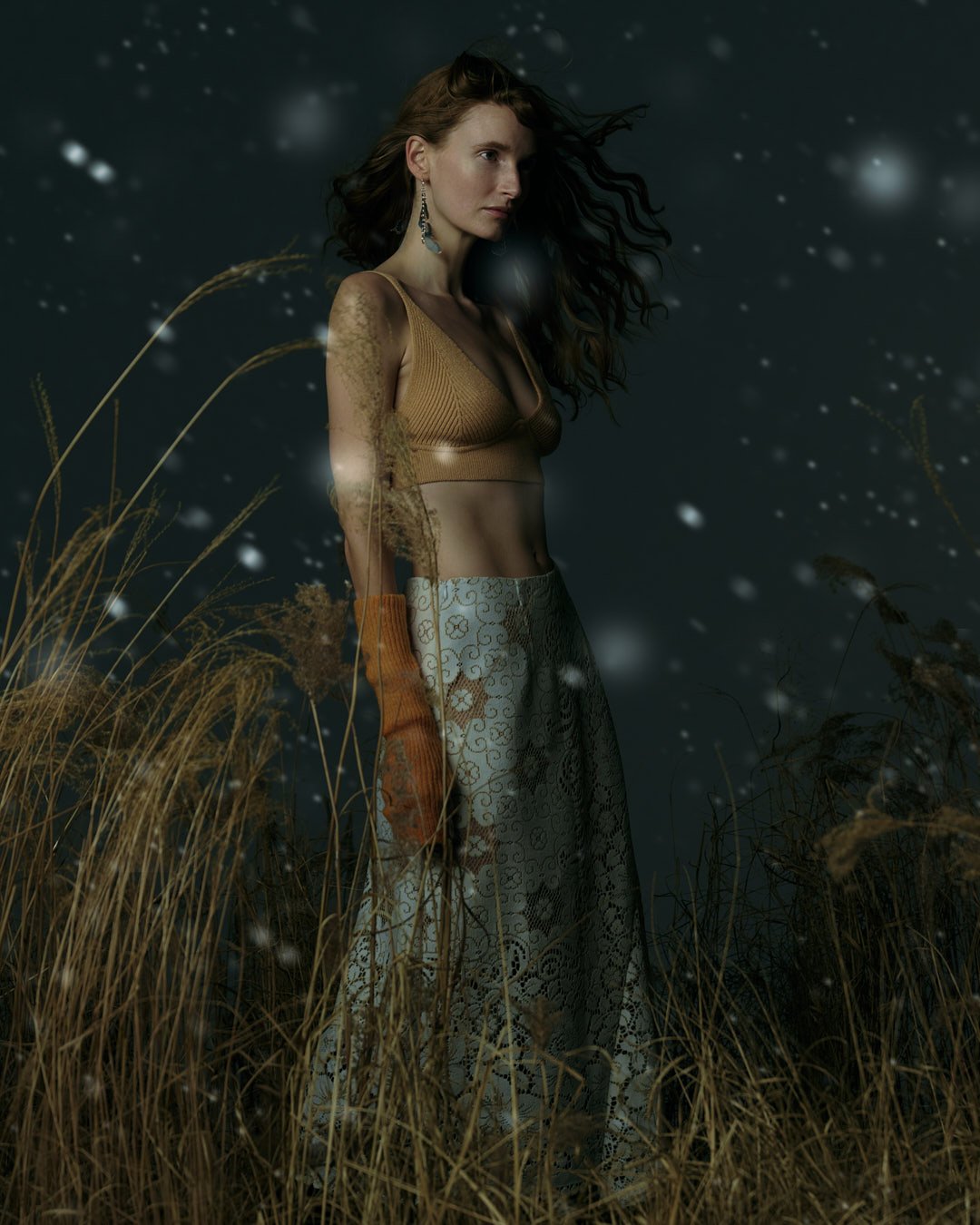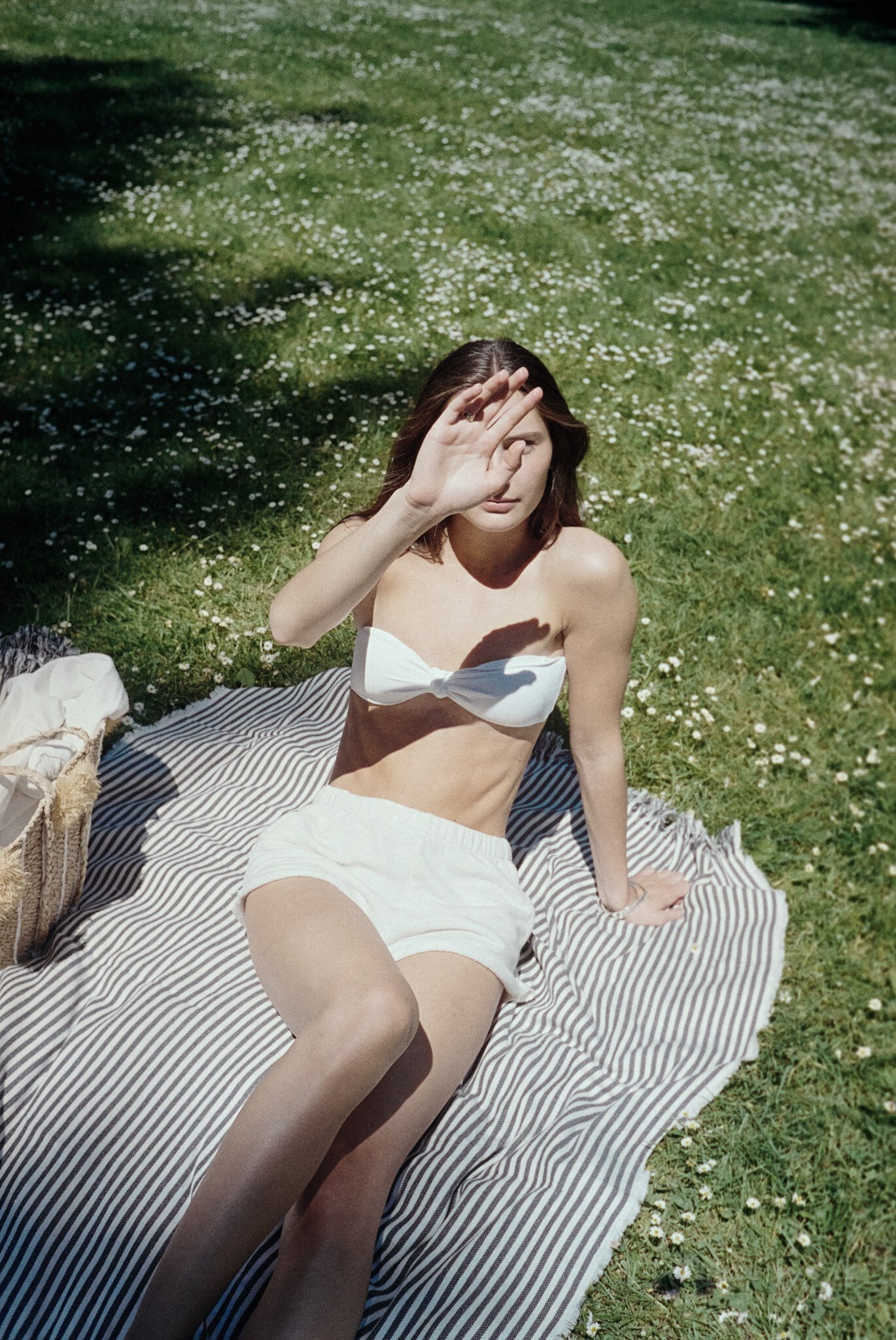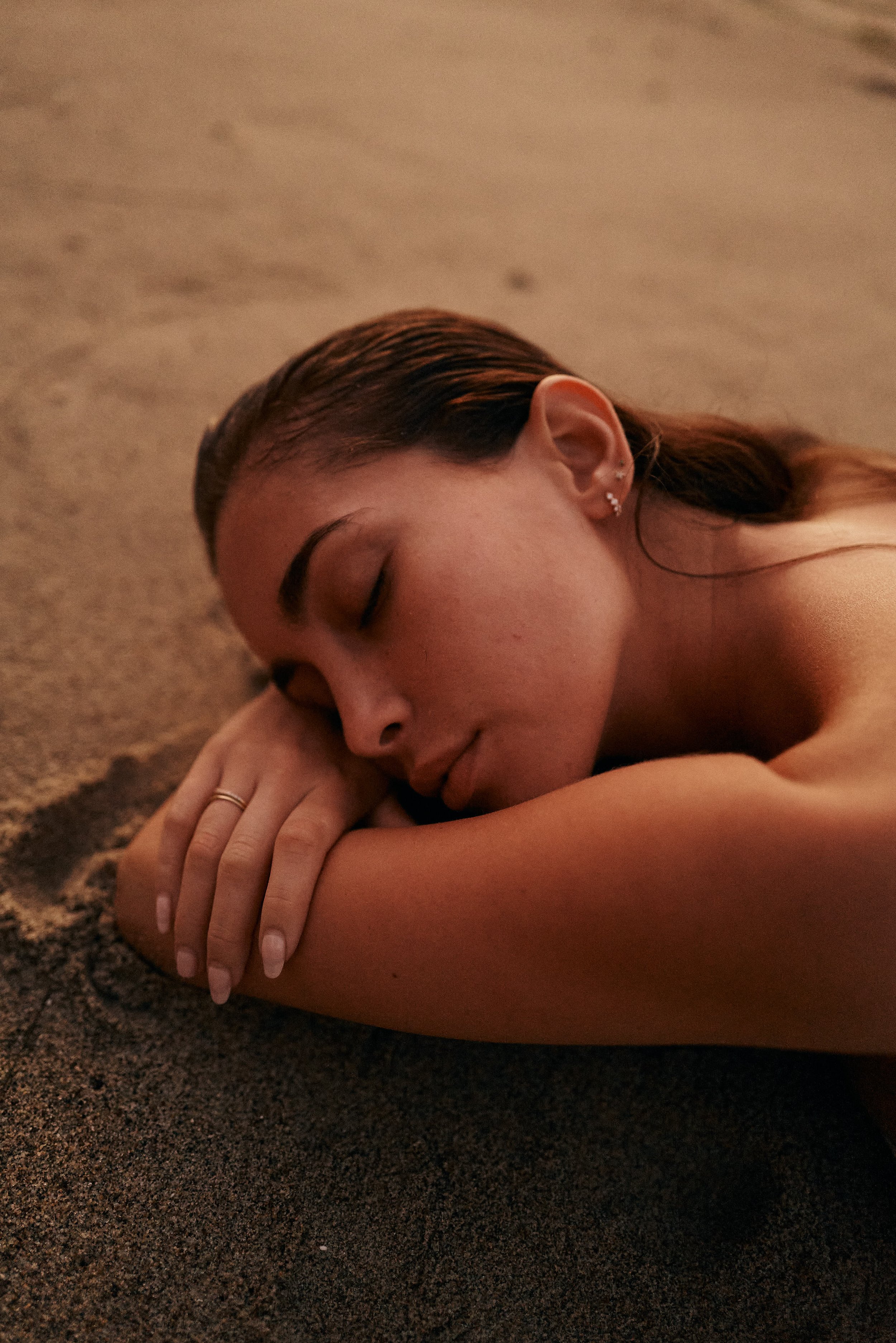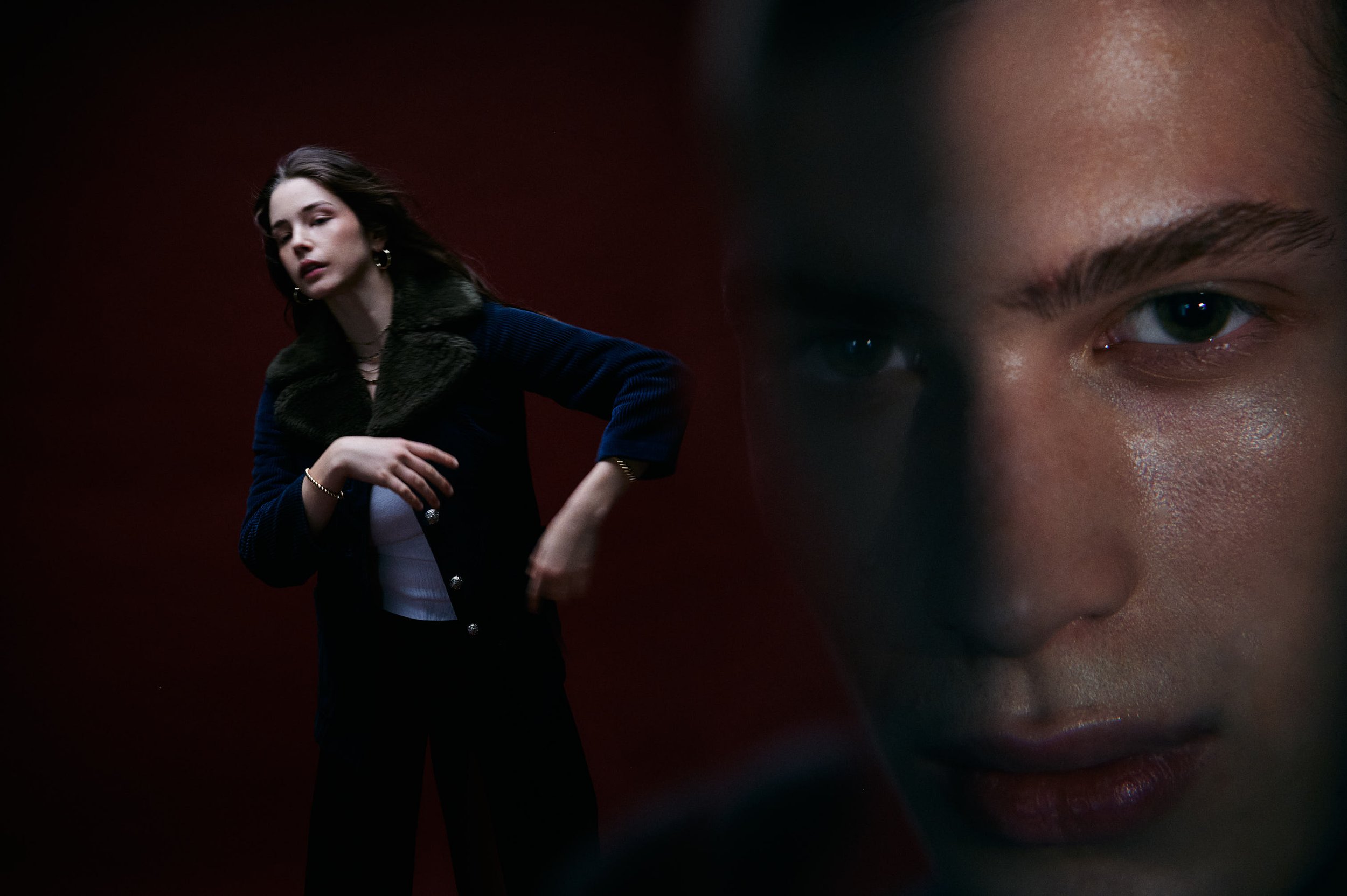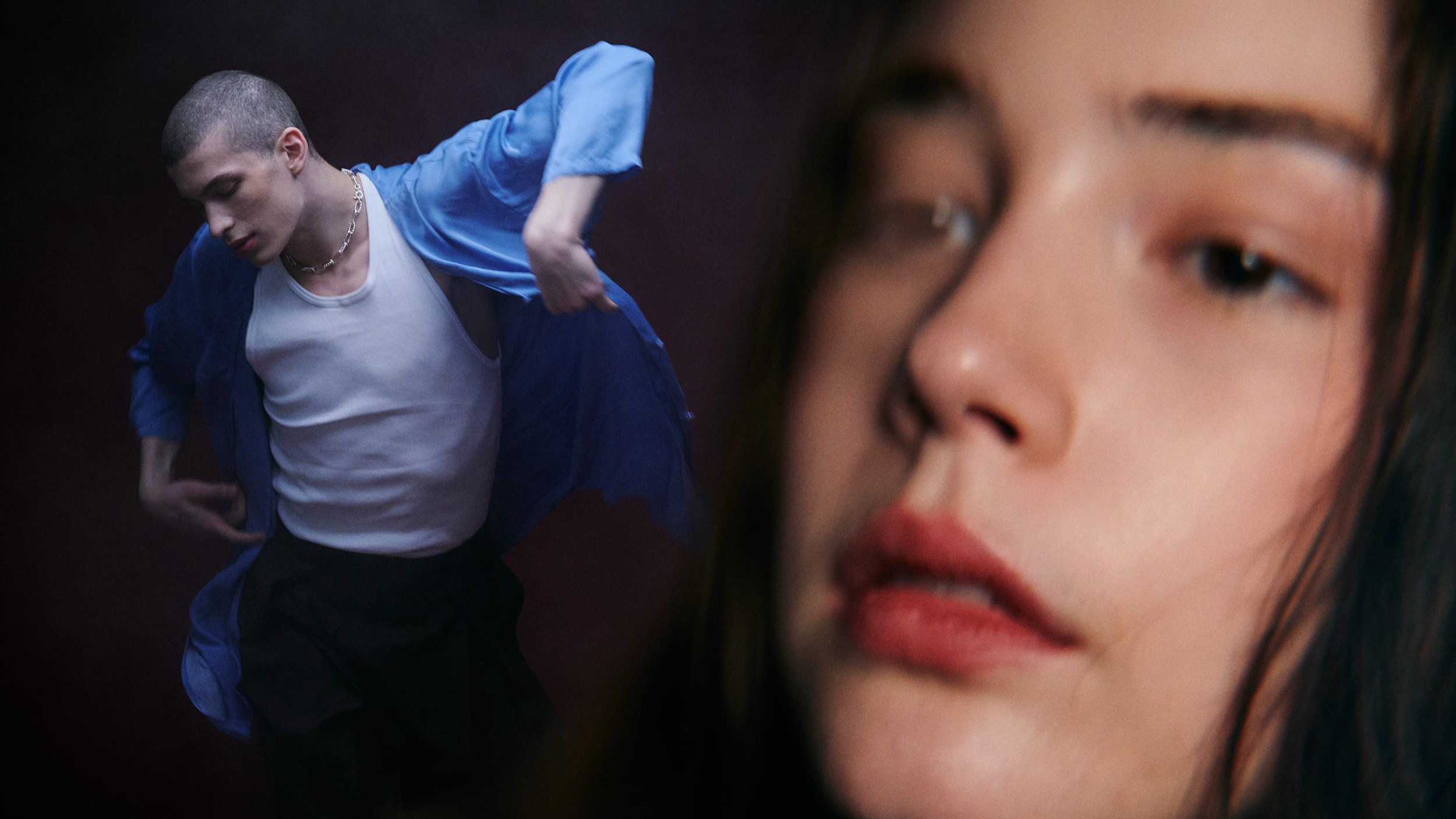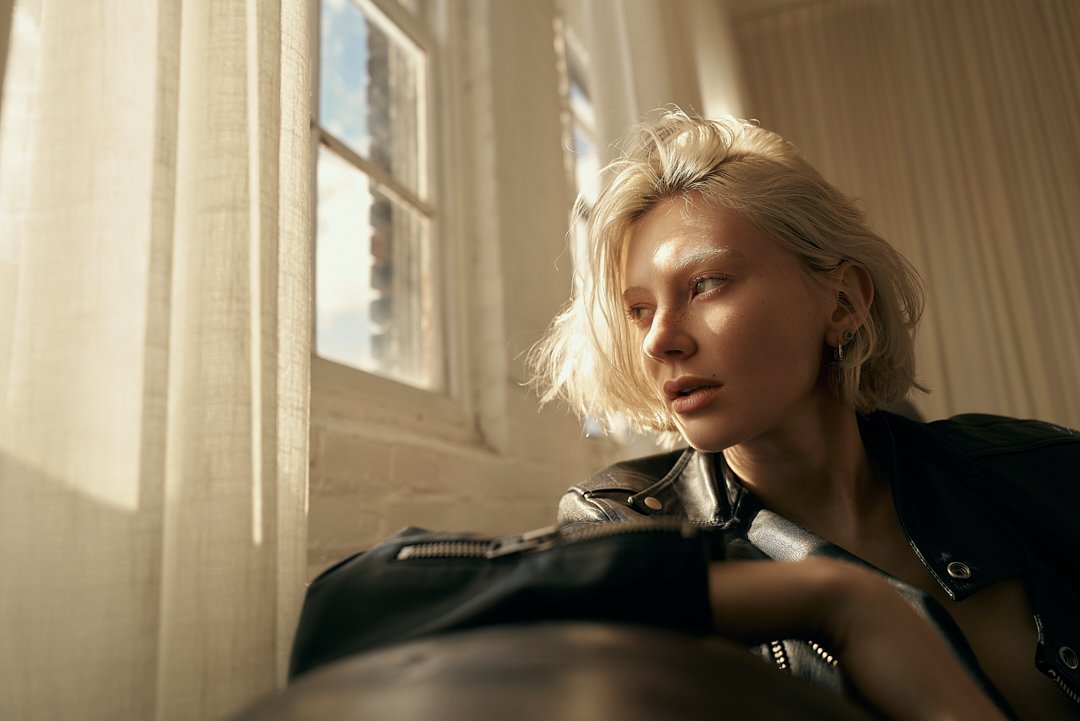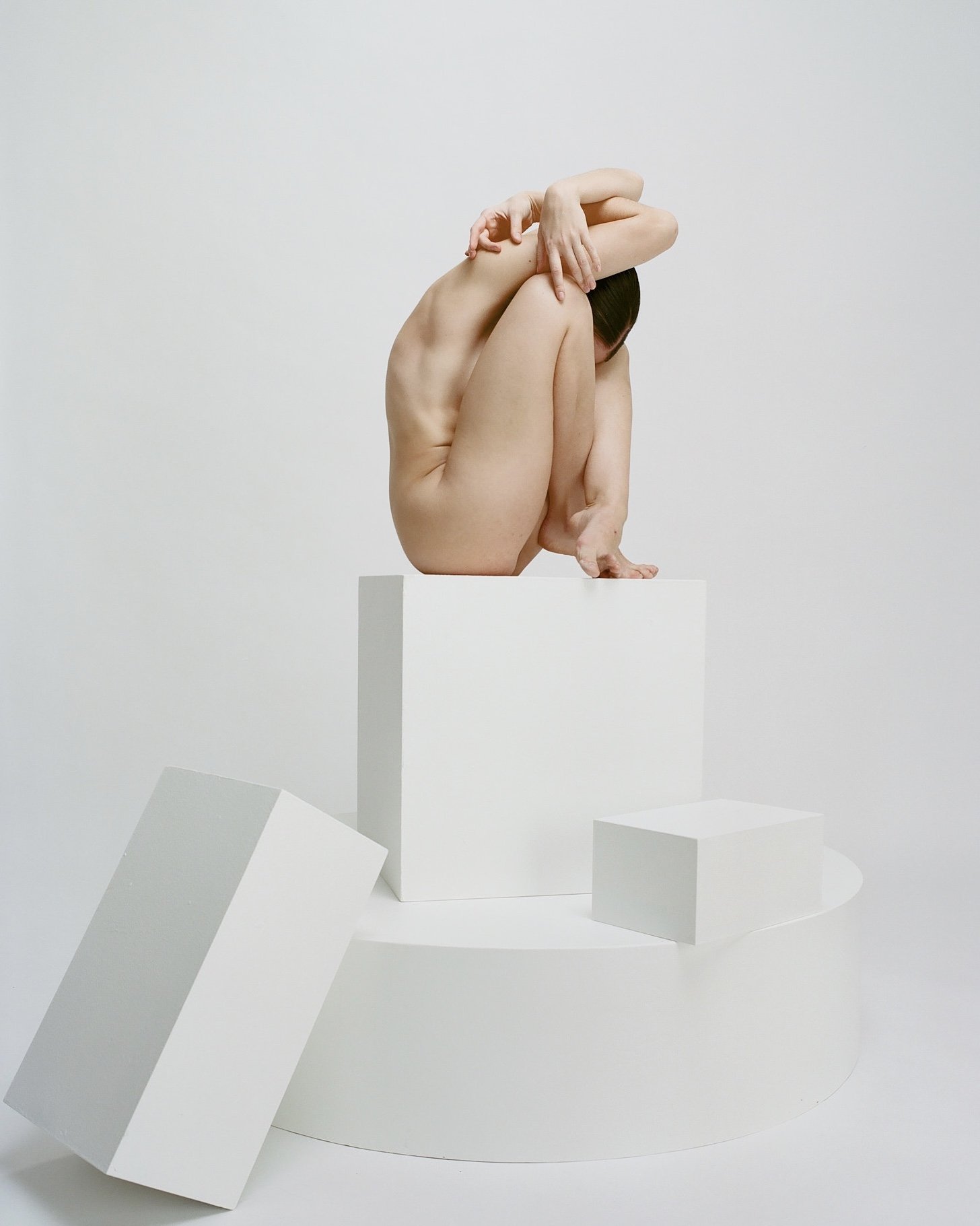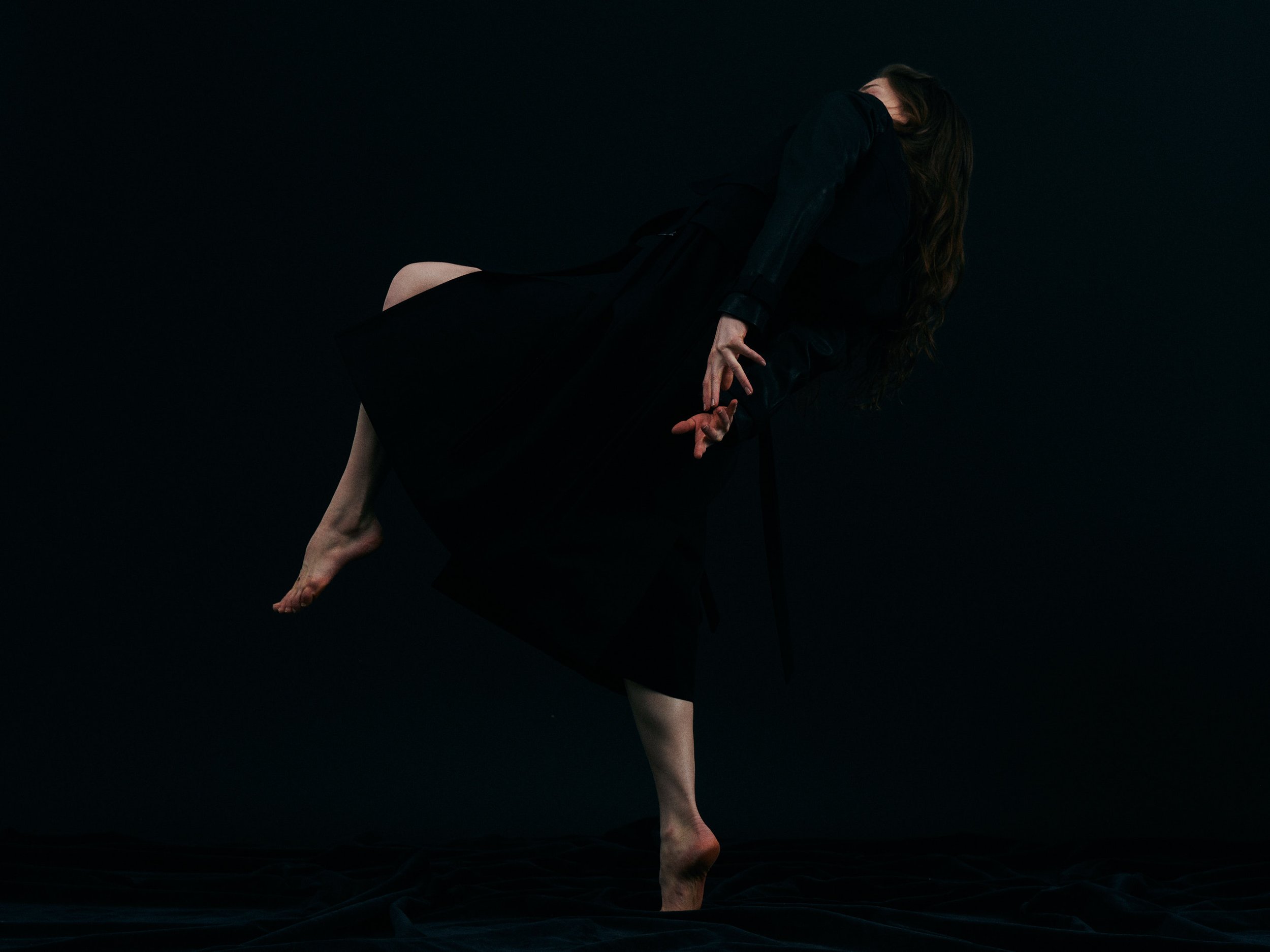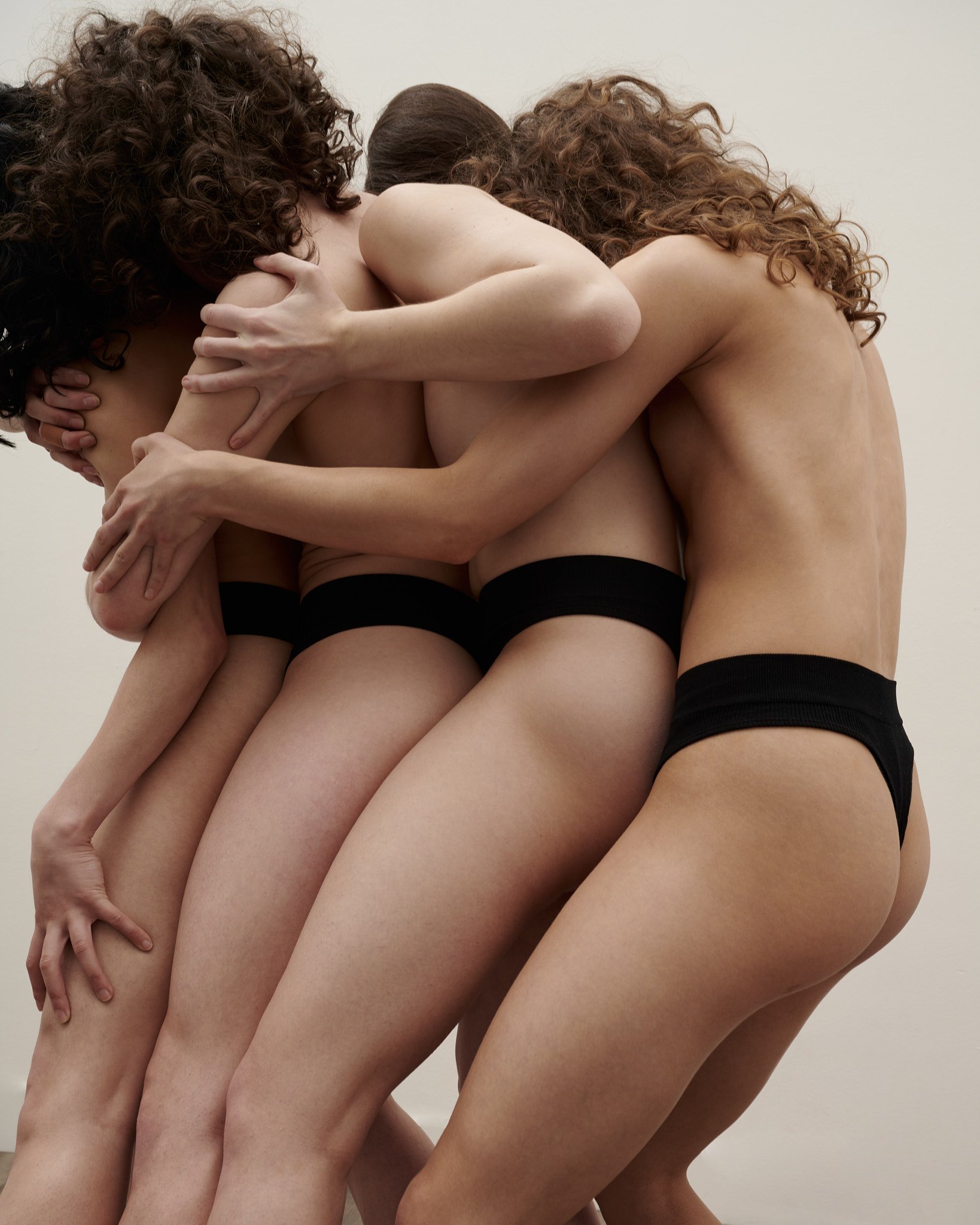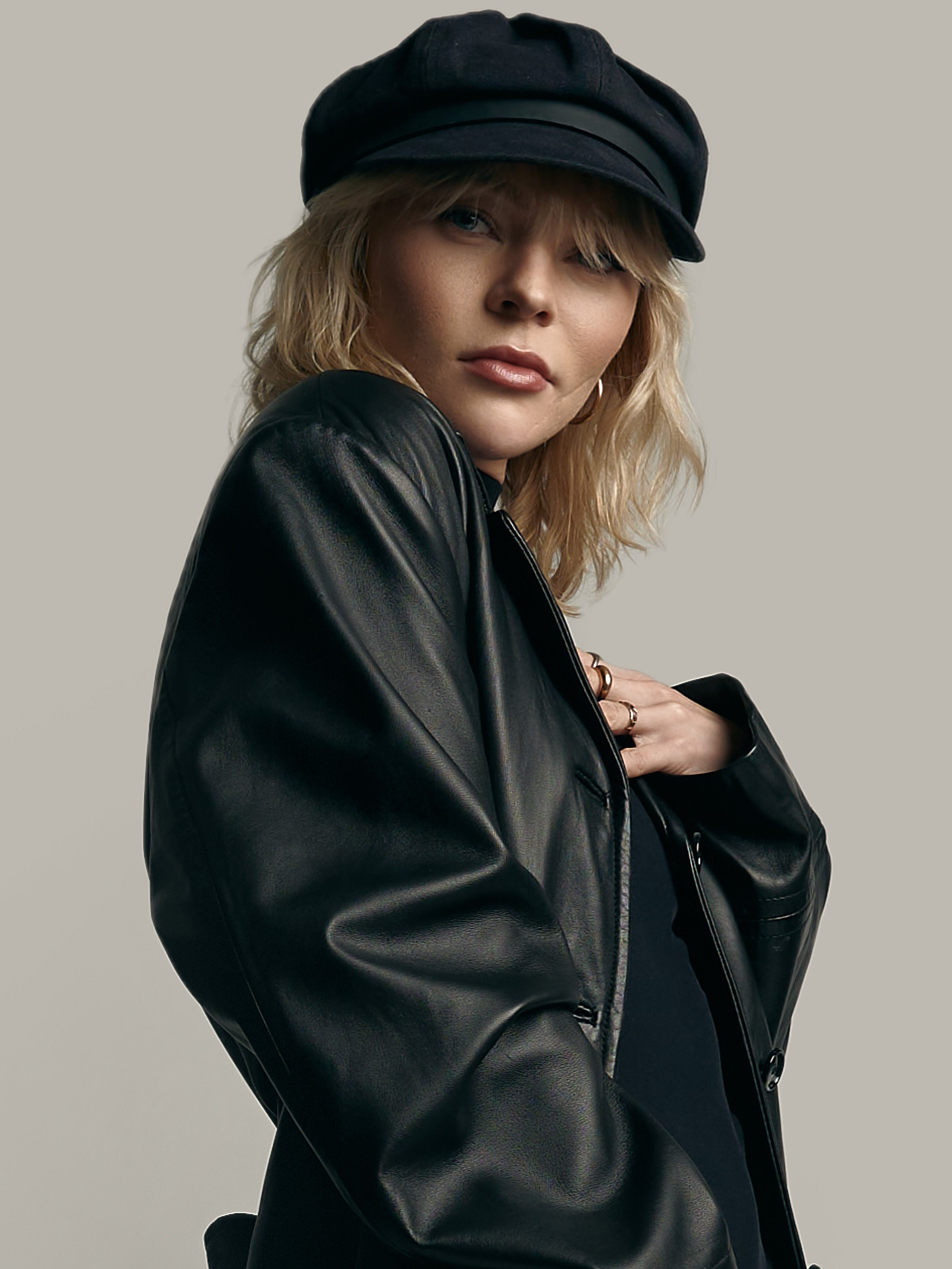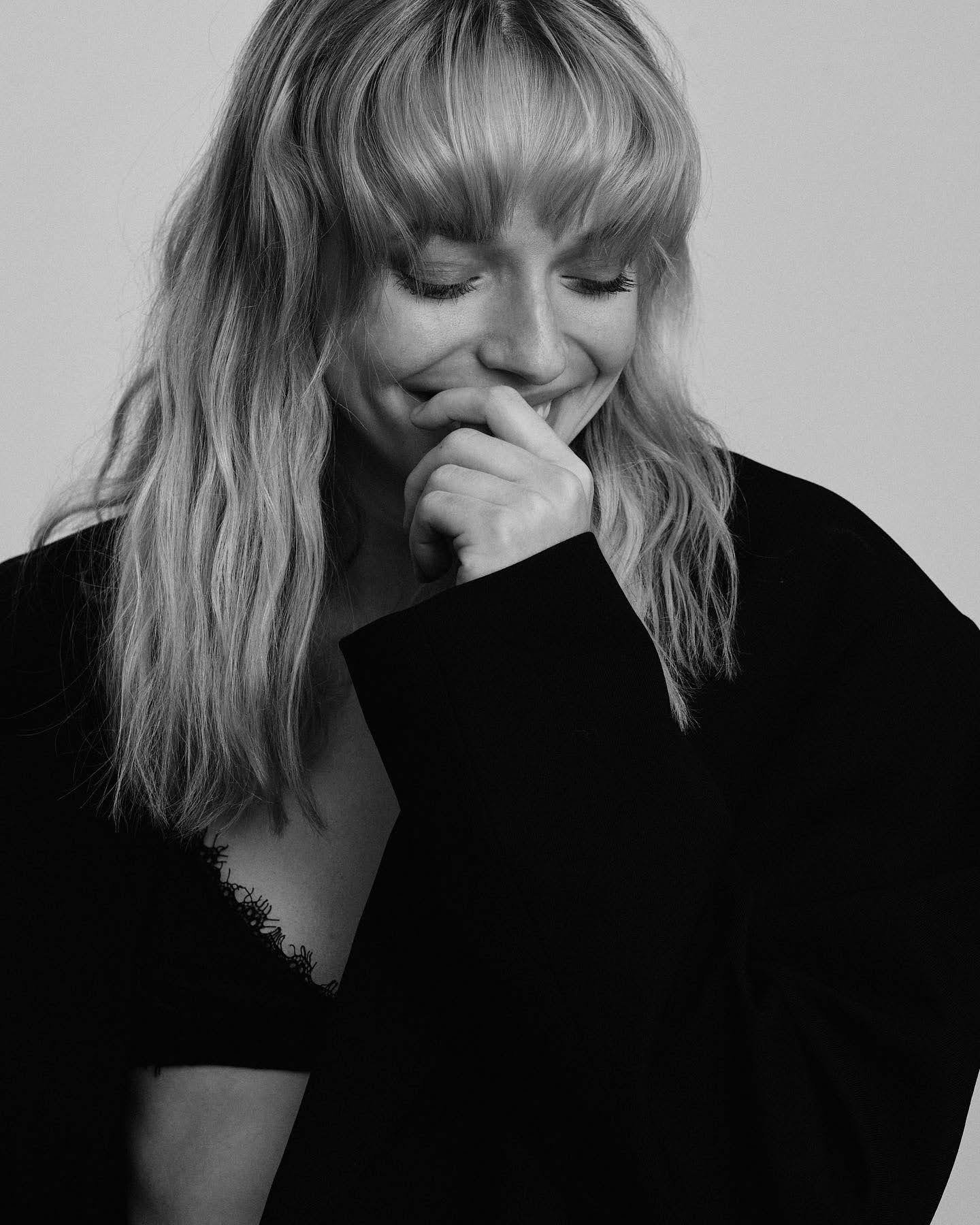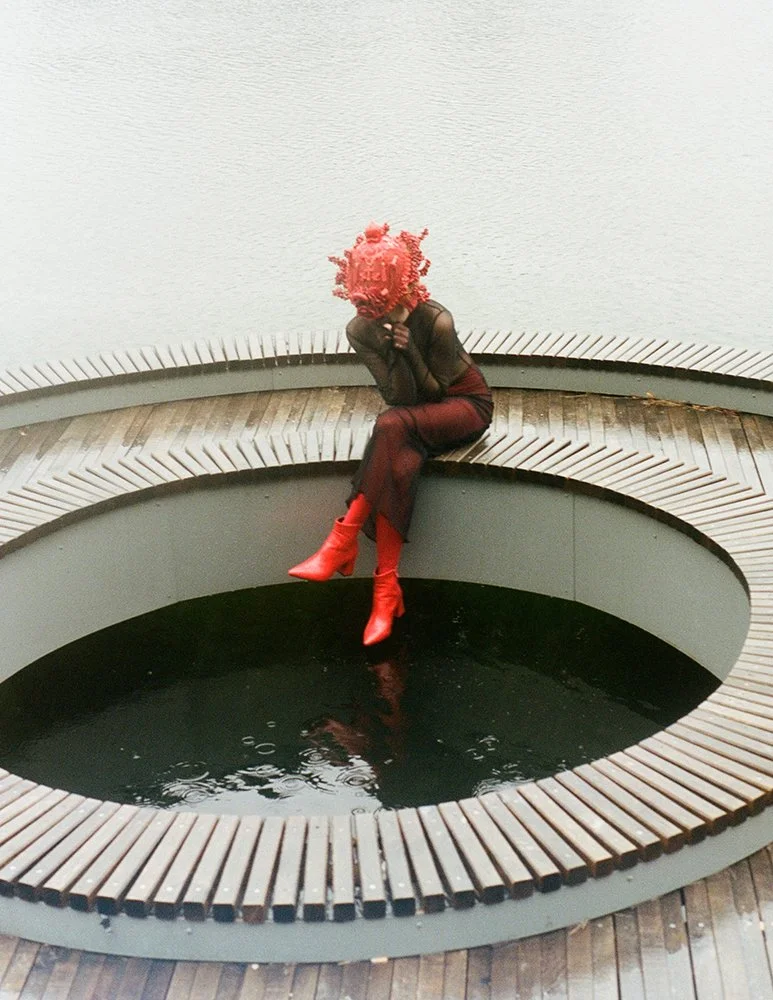BEYOND VISUALS: NOAH ASANIAS ON THE INTERTWINING THREADS OF ART, BUSINESS, AND CREATIVITY
Photographer Noah Asanias, in a recent interview, delves into his artistic evolution, emphasizing the delicate balance between technical prowess, business acumen, and refined aesthetics in the competitive realm of photography. From his initial emphasis on mastering lighting and post-production, Noah's journey led him to the realization that a successful photography career demands a fusion of these elements. He defines his distinctive style as one that creates a sense of mystery, engaging the viewer as an active participant rather than a passive observer. Despite the inherent challenges in the field, Noah thrives on the excitement of problem-solving, continually developing new skills, and finding fulfillment in connecting with people from diverse backgrounds.
Noah's unique process involves translating emotions from journaling and poetry into visual concepts, assembling collaborative teams, and meticulously planning creative visions. As a business-savvy creative, he devotes a significant portion of his time to building relationships and marketing himself. Facing challenges such as the WGA-SAG strike and time constraints, Noah underscores the importance of diversifying income streams and maintaining financial hygiene. His universal advice to aspiring creatives includes prioritizing recurring clients, setting clear financial goals, and fostering meaningful connections in a relationship-driven industry
Tell us about your art. How did you get into Photography and what inspired you to pursue it professionally?
My photography began with a strong emphasis on technical skills. I dedicated myself to mastering the nuances of lighting and post-production. As I progressed in my career, I realized that this was just one piece of the puzzle. I also had to focus on developing my business and marketing skills and refining my artistic aesthetics. In this industry, a delicate balance of all three is crucial for success.
You can't fully unleash your creativity if any one of these elements is lacking. It's about understanding how far you can push your creative tools and how far you can stretch your artistic boundaries. Having a viable business is equally important, as it allows you to say no to projects that don't align with your artistic vision.
I used to believe that style was synonymous with technical skill. However, as I gained more experience and had the privilege of meeting amazing photographers, art directors, and photo editors, I came to a different conclusion. Style goes beyond mere visual representation.
I believe my style is about creating a sense of mystery, making the viewer a participant rather than a passive observer. My art is about creating a relaxed and comfortable atmosphere, conveying emotions that give a timeless quality to my work.
My journey in photography started from a young age. I've always been interested in it, but access to a camera didn't come until I was 18. I grew up in the countryside of the Philippines, where cameras and film were simply not affordable for me or my family. It wasn't until I was around 21 that I truly began experimenting with my DSLR. Initially, I was taking photos of everything from flowers and bees to family events. I gradually transitioned into street photography and even attended a studio lighting workshop, which sparked my passion.
But the turning point came when I traveled to Vancouver for my sister's wedding and fell in love with the city. The only way for me to stay there for a year was to study, so I decided to enroll in a one-year photography diploma program. That's when I truly fell in love with the art.
What I love most about photography is the opportunity to connect with people. I enjoy turning strangers into friends, hearing their unique stories, and discovering how different their lives are from mine. This is what drew me to photography in the first place—it became my tool for meeting interesting people from all over the world, each with their own unique life experiences.
I won't sugarcoat it, being a photographer is not the easiest or most convenient profession. It involves trading your time for money, and there's no guarantee of when or if you'll book another job. Moreover, there are limited resources available on how to manage the business side of photography. You need to learn how to negotiate situations, whether it's about your rates or addressing your clients' needs. But these challenges are also the reasons why I love photography. I thrive on the excitement of problem-solving, finding creative solutions beyond the technical aspects of photography. It's a bonus that I get to create art while making a living and continually developing new skill sets and improving my communication skills.
How would you describe your art?
My photography style is all about creating clean, crisp images with a strong focus on composition and lighting. I love playing with both natural light and controlled lighting techniques to capture dynamic and visually captivating shots. When it comes to portraits, I take pride in my ability to capture the true essence and character of my subjects. I tend to gravitate towards rich, saturated tones in my use of color, which helps elevate the mood and sentiment in my photographs. What sets my work apart is the balance I strike between technical precision and artistic vision, resulting in impactful and stunning images.
One thing that distinguishes me as a photographer is my genuine passion for creating memorable experiences for my clients. I believe in creating a relaxed environment for my subjects, allowing their true selves to shine through. Whether I'm working with models, actors, or the person next door, I've earned a reputation for being a dependable photographer known for delivering outstanding results
What’s unique about your art?
This was really hard for me to answer and took me a while to be able to describe it. I really believe that what makes my art unique is me – what I bring to the table, it goes beyond visual representation, it is my approach, whenever you are on my set it feels more of a hangout than work.
Where did you learn your craft? Were you self-taught or did you go to any school to study about your craft?
I hold a Bachelor's degree in Fine Arts and Advertising, which provided me with a solid foundation in the creative and conceptual aspects of photography. Additionally, when I moved to Vancouver, I decided to enroll in a photography school.
However, it's important to note that photography is a field where there are various paths to skill development. While formal education can be valuable, I've also learned that you can acquire a significant amount of knowledge online or through hands-on experience as an assistant to other photographers. This can be a cost-effective way to gain practical insights and skills in the industry.
Where do you usually get your inspirations? What scares you?
Irvin, thanks for these thought-provoking questions. Gotta admit, they make me a bit nervous, but let's dive in. When it comes to inspiration, I'm all about human connections and life experiences. I thrive on deep conversations, and meeting fellow artists is a real joy for me. You know, there's something captivating about contemporary ballet dancers - they manage to be both mysterious and incredibly expressive at the same time.
Now, here's something that keeps me up at night. I'm so passionate about photography that it can take over a big chunk of my life. I worry that in the pursuit of my craft, I might end up sacrificing important things, like my relationships with loved ones. It's a juggling act, for sure.
Tell us more about your business and your unique approach to it. What do you want the audience to know more about your story as an artist and as an entrepreneur?
I like to think of myself as more of a business-savvy creative, with a strong focus on building relationships. Most might see me as a happy-go-lucky person, but those who've seen me behind the camera when I'm not shooting know just how much dedication I put into my photography.
Here's a little insider info about my work: Only about 20% of my time is actually spent shooting. The rest of my time, 30% production, and about 50% dedicated to reaching out to brands, art directors, photo editors, small businesses, and fellow artists. I'm always on the hunt for new connections, strengthening existing relationships, and figuring out how I can bring value to others.
I know I am not the best photographer out there, but there's a reason my clients keep coming back. They enjoy working with me, not just because of my portfolio but because I go the extra mile to provide value that goes beyond delivering a great image. And that trust and value are what help me attract new clients too.
Walk us through your unique process. How do you create from conceptualization to finished product?
I'm a big fan of journaling and writing poetry, and I find inspiration in the world around me. My creative shoots are typically born from these emotions and thoughts that I've put down in verse.
When I get an idea, I like to translate it visually. For example, let's take the word "alone." It brings to mind images like, an empty glass, a child gazing at the sky with wishes, sound of clocks in an empty house, lost sock in a bedroom, subtle signs, gray bubble disappearing on imessage, small dining table with one plate, and glances exchanged in between tears. These visuals become the building blocks for the image I want to create.
Once I've got my concept down, I start assembling a team. I look for people who not only understand the concept but also whom I can trust to make decisions without constantly checking with me. I value their expertise and want them to know I brought them on board because they're pros at what they do.
Lastly, when it comes to models or talent, I do a little social media digging. I try to get a sense of who they are and whether they can breathe life into the character I've envisioned. It's all about finding the right pieces of the puzzle to bring my creative vision to life. – who not how.
Do you prefer working alone when you create your art or do you thrive whenever you work with other people?
When I'm in the idea-generating, I tend to enjoy solitude or hanging out with just a few people. But when it's time for the actual production, I'm all about collaboration. I thrive on being in the mix with a bunch of talented individuals, watching them do their thing and bringing our vision to life.
How important is collaboration for you?
This is a big deal for me – I love bringing in artists and talents who are better than me in their respective areas. I'm all about them bringing their expertise to the table rather than me calling all the shots. I've found that this approach works like magic, much better than me telling the team what to do. And it's a real treat when clients come to me, seeking my opinion and how I'd approach things.
Are you working on any specific project right now? If yes, can you tell us a little bit about it.
I've got a couple of commercials in the pipeline, but I'm afraid I can't spill the beans on those until they've been released.. On the creative and editorial side of things, I've got this ongoing obsession with contemporary ballet that's been brewing. The challenge I'm tackling now is how to make it happen, especially since the dancers I want to photograph are scattered all over the globe. It's a puzzle I'm excited to solve.
Is there a favorite, memorable collaboration/project/work/art from your portfolio that resonates with you a lot? Why?
One project immediately comes to mind, and it's deeply connected to my obsession with contemporary dancers. You know, as an artist, I've always had a deep admiration for those old Greek sculptures and Renaissance paintings. Their influence is pretty evident in these photographs. What makes this project particularly meaningful to me is that I've wanted to do something like this for the longest time. The challenge was in figuring out how to approach it. That's when collaboration entered the picture. I met and worked with a lot of dancers, and it hit me – I don't have to go about it on my own. The dancers have so much to bring to the table, and all I have to do is share my vision. They just seem to get what I have in mind right away. It's an incredibly rewarding process.
How do you market yourself? How do you connect with the people that you want to work with? When did you decide to turn your passion into your business?
In that famous book "How to Win Friends and Influence People," the author wisely said, "Be interested to be interesting." I've taken this principle to heart, and it's a big part of how I approach connecting with people. I reach out to people that I find interesting, either because of their work, personality, or I think what they are doing is cool.
I decided to do photography full time in Sept of 2016, not knowing anyone in the city and not having any capital to start a business. I did what didn’t cost much, which was meeting people.
My method is pretty straightforward. I reach out to individuals through various channels, like email, Instagram, or LinkedIn. I make sure to send a brief, attention-grabbing message. Right from the get-go, I lay my intentions on the table: I'm looking to connect over coffee, whether in person or virtually. The main goal is to see if I can offer any value, or assist them with their creative projects, whether they're unpaid or paid. The specifics don't really matter to me; it's about fostering meaningful connections and providing help where I can. I once read that “the more hands you shake the more deals you make.” Our industry is very much a relationship, it is really who you know not what you know. And this is why I focused on this aspect of my business.
What are the challenges that you faced throughout your career so far?
Honestly, the big challenge on my plate right now is dealing with the WGA-SAG strike. You see, a lot of my clients are in the entertainment business, and that's throwing a curveball into things.
Another hurdle I've been facing is the time crunch. It's a trade-off – I trade for time and money, which means I can't jet off on vacation whenever I please. That's why I'm working on diversifying my income streams with my retouching agency and other investments. It's all about making my financial situation a bit more flexible.
How did you manage to rise up to these challenges?
Other than building genuine relationships, I don’t know. Just dumb luck I think haha!
What’s a valuable lesson that you’ve learned from your career that you think is universally relevant?
Treat everyone with respect and that you don’t get what you deserve, you get what you negotiate.
Are there any advice that you can provide to any aspiring creative individual who wants to break into the industry and establish themselves as a business?
A smart approach in this line of work is to prioritize building a base of recurring clients. By doing this, you're ensuring that your essential costs, both for your business and your personal life, are consistently covered. Once you've achieved that financial stability, you can gradually begin to incorporate new clients who are willing to pay a higher price for your services. This strategic shift allows you to gain more control over your time and enjoy greater freedom in your life-work balance.
Another one is focusing on your financial hygiene. Honestly, I wish I'd learn this sooner. Setting clear financial goals is a key part because it helps you define what "winning" looks like for you. Without those goals, you could be raking in money but still find yourself broke. It's all about getting your money game in check.
If you were a book, what book would you be and why?
This is the hardest question because I feel like I am not the books I read – yet. But if I can recommend a book at the moment I highly recommend The Creative Act by Rick Rubbin for those who wants to be inspired creatively, Comfort Crisis by Michael Easter if you want to break into a new horizon and make changes and lastly 4000 Weeks by Oliver Burkeman just a really good book to read and get perspective on.
At the moment, I'd say I can relate a lot to "Comfort Crisis." I'm in the midst of some changes, and there's definitely a level of discomfort that comes with it. It sometimes makes me want to stick to the familiar, but it's also a reminder that change can be a good thing.
